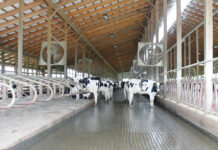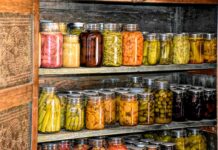For more than 20 years, Jackie served as the main field hand on the big dairy farm of my youth. He was tough piece of sun-baked leather who never weighed more than 150 pounds when fully clothed, soaking wet and carrying a 10-pound sledge hammer.
He possessed a hired man’s respect for talk; he talked only when talked to and then, most times, in a collection of southern Illinois’ phrases that carried more code than context.
For example, once my father asked him how much plowing he had completed in a field on the farm’s far flank. Jackie’s reply was a perfectly vague, “Right smart.”
My father, not knowing what “right smart” meant, drove to the field to discover the 40-acre field was nearly half plowed. That knowledge, however, only raised another question: Was “right smart” about 20 acres or about halfway?
That head-shaker had another perfectly vague, often-used Jackie-ism: It’s a mystery.
The sentence was usually delivered with a noticeable cock of his head to the right and with the operative word sounding more like a two-syllable proper noun — Miss Tree — than a three syllable common noun, mystery.
Two more things you won’t know about Jackie unless I tell you: He was illiterate and his given name was Herbert. He could sign his legal name in a slow, shaky hand, but he couldn’t read any sentence it might appear in.
Comes to mind
Jackie comes to mind (as he might to long-time readers who may recall a mention of him years ago) more and more as a warm winter and hot political season brings a right smart amount of vapor lock to more brains than usual.
For example, commodity groups, farm organizations, several state legislatures and many in the ag press are all aflutter over what they breathlessly warn is a well-oiled vegetarian conspiracy to kill animal agriculture.
Moreover, these worried carnivores — whose livestock are, curiously, mostly vegan — brook no compromise by any market-driven customer like McDonald’s and Chipotle whose diners say they will continue to happily enjoy eggs and chew bacon from hens and hogs they believe are, well, happy.
What makes a hen or hog happy? It’s a mystery but I reckon it’s a very safe bet — a right smart bet, in fact — that the 67 square inches that compose a caged laying hen’s entire world doesn’t hold a lotta’ laughs.
In fact, doubling that space to 124 square inches, or about one-half the front page of the newspaper in your hands, probably doesn’t harbor a whole lot more but it has to hold twice as many as something that goes by the grim name “battery cage.”
At least that’s what the United Egg Producers, a nationwide farm cooperative that represents the owners of 95 percent of the laying hens in America, believes.
UEP and HSUS
UEP is working with the Humane Society of the U.S. to codify federal regulations it knows its customers know they want for its chickens.
And how do these customers — most of whom have never met a chicken, let alone a happy chicken, in their lives — know? They know by where and how they spend their money; they are customers and they are always right.
Some in the Bacon Gang are getting smarter, too. McDonald’s announced in mid-February it would not purchase bacon from any producer that “confines pregnant sows in gestations crates.”
Big Mac is a latecomer on the happy hog train. Already on it are Burger King, Winn-Dixie and Wendy’s. Smithfield’s, the biggest bacon maker in the world, has pledged to hop on by 2017 when all its gestation crates will be gone.
Are these global food sellers anti-meat vegans or are they smart marketers who know their customers are always right? My bet is they’re right smart marketers.
Smarter, anyway, than anyone who insists they are right and their customers are wrong.












